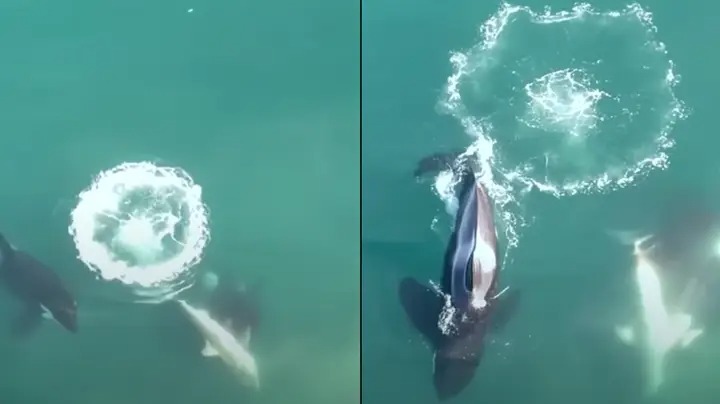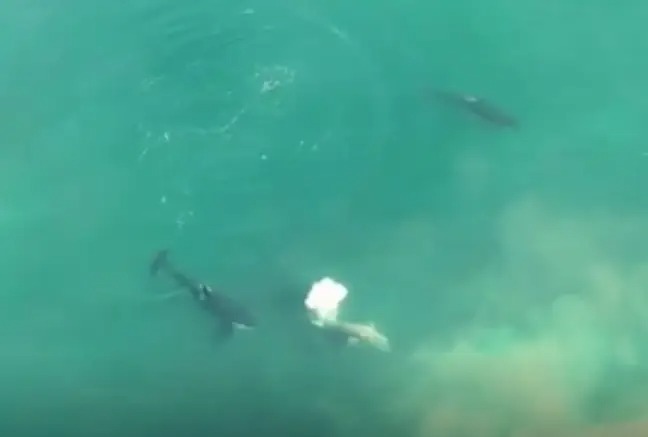
Amazing video depicts killer whales in South Africa pursuing great white sharks.
The first-ever aerial footage of orcas hunting and killing great white sharks was obtained by a team of scientists using a helicopter and a drone.
View how the predator turns into the prey here:
A pod of orcas went on an hour-long killing spree on Mossel Bay on May 16, 2022, and it was seen from above.
Although killer whales have been known to attack great whites for a long time, it had never before been documented on camera.
The video was included in a study that was included in the October issue of Ecology, the journal of The Ecological Society of America, and it provided fresh insight into the conflicts between the two main marine predators.
Lead author Alison Towner, a senior shark scientist at the Marine Dynamics Academy in Gansbaai, South Africa, said that “this behavior has never before been observed in detail, and certainly never from the air.”
Only one of the two killer whales in South Africa previously associated with great white hunting was visible in the video along with four other killer whales. The authors speculate that the behavior may be spreading as a result.

The study also sheds new light on how sharks try to avoid being caught by orcas.
Sharks didn’t run away when orcas approached them closely and slowly on two occasions; instead, they stayed nearby to keep the orcas in view, a tactic that seals and turtles use to avoid sharks.
Perhaps as a result of their unusual position as prey, sharks mimic the actions of those they hunt?
Researchers think it might not be as effective for sharks to use in this situation because orcas are social and hunt in packs.
“Killer whales are extremely social and intelligent creatures. They are extremely effective predators due to their group hunting techniques, “said Dr. Simon Elwen, director of Sea Search and co-author of the study who is also an expert on marine mammals and a research associate at Stellenbosch University.

The study confirmed that one infamous killer whale – locally known as Starboard – was part of the pod and ate what was suspected to be a large piece of shark liver at the ocean surface. The footage also revealed how another killer whale bit into a white shark at the region of the liver.
“I first saw Starboard in 2015 when he and his close-associated Port were linked to killing seven gill sharks in False Bay,” said David Hurwitz, a boat-based whale-watching operator from Simon’s Town Boat Company.
“We saw them kill a bronze whaler [copper shark] in 2019 – but this new observation is really something else.”
The new study also analysed drone and cage dive boat survey data before and after these predation events.
White sharks were seen on every survey day for the weeks prior to the predation event and multiple sharks were seen on the day of the predations.
However, only a single white shark was seen in the 45 days after the predations, confirming a flight response by sharks.

Leave a Reply